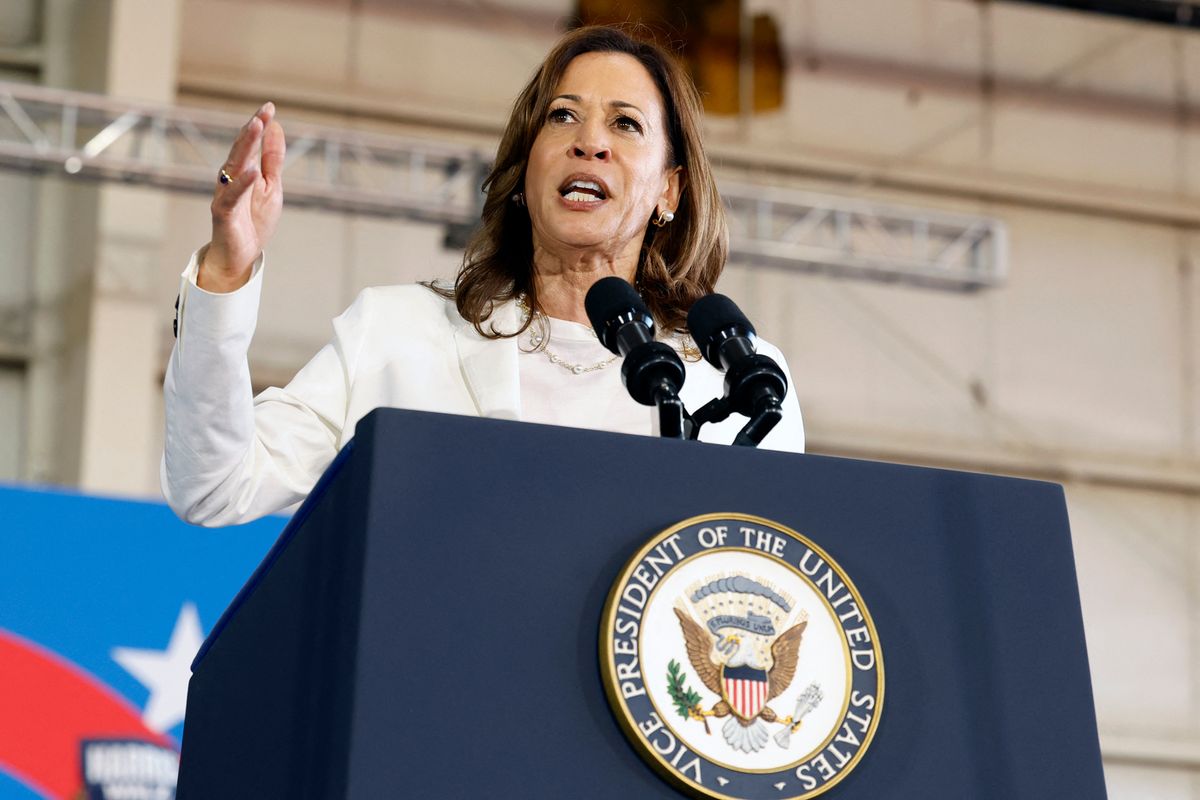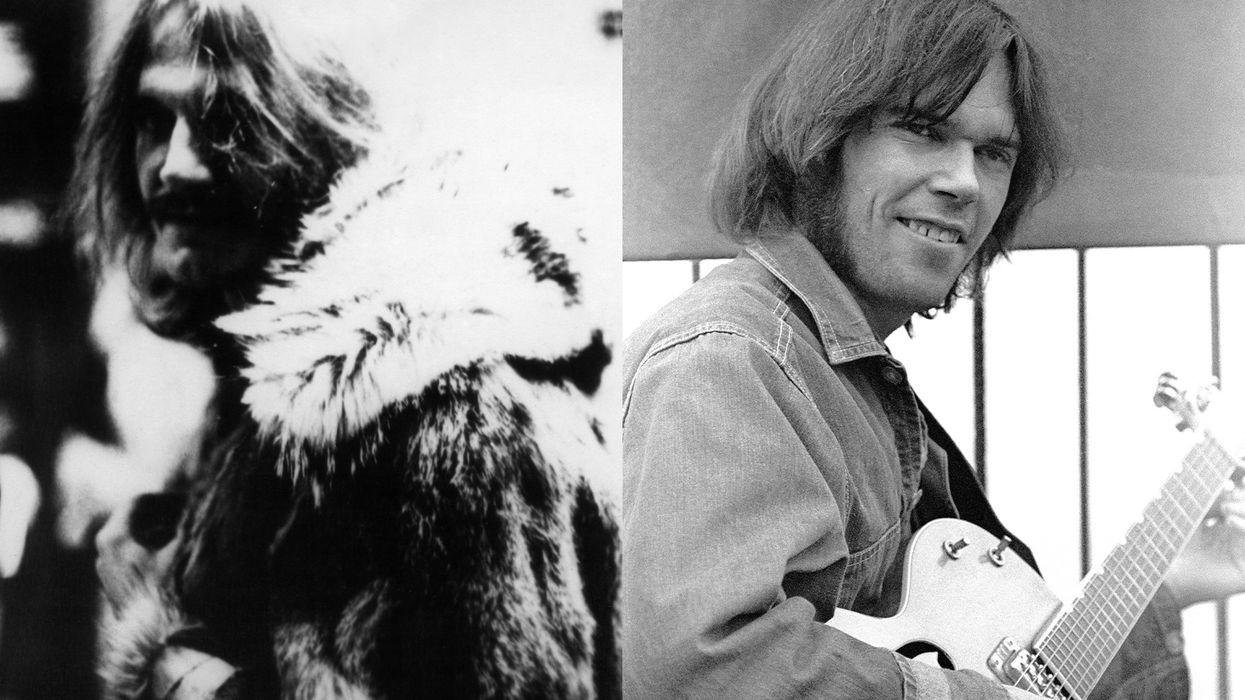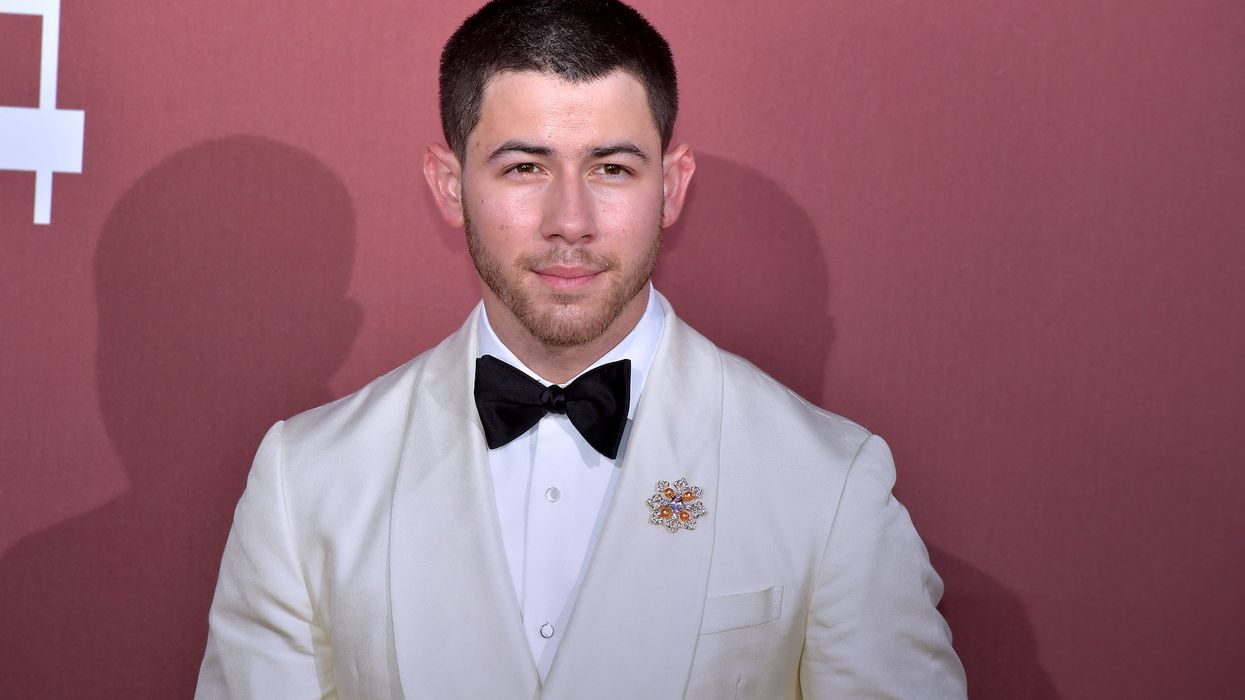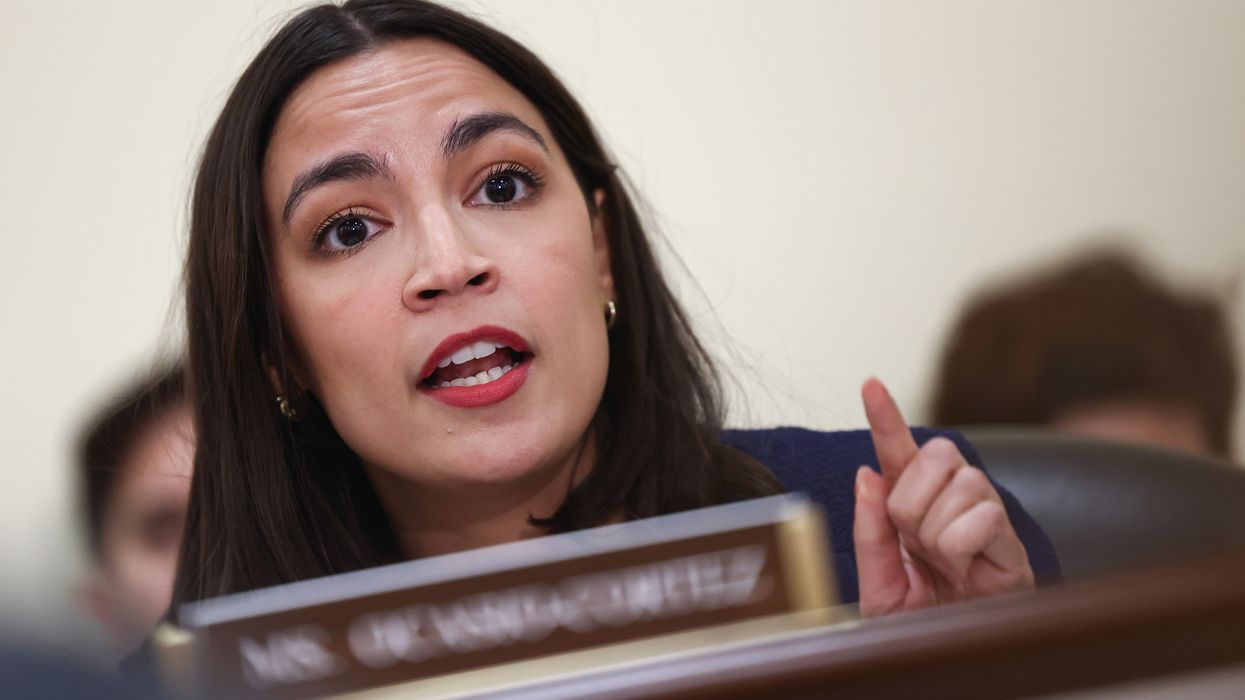Kamala Harris and her running mate Tim Walz made their political debut to throngs of screaming supporters in Philadelphia on Tuesday night. The next day, they hopscotched over to Eau Claire, Wisconsin, for a casual meet up with 12,000 Bon Iver-heads, before touching down in Detroit, where some 15,000 people turned up on the Detroit Metro tarmac to greet them.
Harris was on stage inside an airplane hangar a little while later, when her speech — and the positive vibes that have propelled her campaign for the past two and half weeks — were interrupted by protesters demonstrating against the Biden administration’s decision to continue arms shipments to Israel, even as that country’s right-wing government uses those weapons with little regard for the lives of civilians, aid workers, and journalists. An estimated 40,000 people have been killed in Gaza since the war began in October.
“Kamala, Kamala, you can’t hide. We won’t vote for genocide,” the protesters chanted.
Delivered in Michigan — where 100,000 people withheld their votes for President Joe Biden in February’s Democratic primary over his administration’s Gaza policy — the message has some teeth. Hillary Clinton lost the Democratic stronghold by just 10,704 votes in 2016; Biden reclaimed it for Democrats in 2020, but with a slim, 154,000 vote-margin.
Harris seemed, initially, to take the interruption in stride. “I’m here because we believe in democracy. Everyone’s voice matters, but I am speaking now,” she said after the first chant broke out. Then, she resumed her speech: “Look, if he is elected, Donald Trump intends to give tax breaks to billionaires and big corporations, he intends to cut Social Security and and Medicare, he intends to surrender our fight against the climate crisis and he intends to end the Affordable Care Act — ” The chanting continued, and Harris’ patience, seemingly, ran out. “You know what? If you want Donald Trump to win, then say that. Otherwise, I’m speaking,” she said.
The moment was clipped and quickly spread around social media, where it was received poorly by would-be Harris supporters hopeful that a change at the top of the Democratic ticket would also portend a meaningful change in U.S. policy as it relates to Gaza.
There have been subtle signals that Harris would be more inclined than Biden to support such a change, including her calls for a ceasefire that pre-dated Biden’s, reports she’s advocated for stronger public criticism of Israel’s refusal to let humanitarian aid into Gaza, her personal outreach to a man who lost dozens of family members in the war, and her selection of Walz as a running mate.
But in the absence of Harris herself articulating a policy vision distinct from the current administration’s, the viral moment seemed to confirm the worst fears of voters who are disturbed by the fact that U.S taxpayers are funding what United Nations experts have assessed can reasonably be called “a genocide.”
Before they took the stage on Wednesday, Harris and Walz were introduced to the founders of the Uncommitted Movement, Layla Elabed and Abbas Alawieh, who say the campaign invited them to Wednesday’s rally. The invitation, extended after months of lobbying for both a meeting to discuss an arms embargo and speaking slot at the convention, was for a brief introduction during a photo line.
“It was only a few minutes in the photo line-up, and I did get really emotional,” Elabed tells Rolling Stone. “Harris was incredibly sympathetic. And I could feel her sympathy was very genuine… And when I said, ‘Will you meet us?’ She said: ‘Yes, let’s meet.’” Elabed and Alawieh say Harris then directed a staffer to arrange a meeting with them. They’re hopeful it will take place, but no date has been set.
“Obviously we need more than just sympathy… We can’t eat sympathy,” Elabed says. “Palestinians, who are taking the forefront of this assault, can’t live off of sympathy. We need a real policy shift. We need a real change.”
After the event, the Uncommitted Movement sent out a press release declaring that Harris had agreed to meet with them to discuss an arms embargo. The vice president’s national security advisor, Phil Gordon, immediately disputed the idea that she would support one. A spokesperson for the campaign, meanwhile, said only that Harris “affirmed that her campaign will continue to engage with those communities.”
Alawieh and Elabed remain optimistic about the prospect. “It feels like the Vice President is interested in engaging,” says Alawieh, who worked with members of Harris’ team as a legislative director in Congress. “I know Vice President Harris’s team is a strong group of people, many of whom are in touch with Arab American, Muslim American, and Palestinian American community leaders, so it hasn’t surprised me that there’s been more responsiveness, certainly, than what we were getting from President Biden.”
He added that they recognized that Harris’ campaign is new and that she and her staff are still working to get it off the ground. At the same time, he says, the Democratic campaign reset presents “a real opportunity to turn a new page on Gaza policy.”
“My sense is that the last 10 months of this administration’s Gaza policy have been disastrous, and that as we go into the most important months of this campaign cycle, a hypocritical campaign stance that says ‘Cease-fire’ in one in one breath, and then continues to support the unconditional flow of weapons in the in the next is not a sensible policy, and it’s not a good campaign strategy,” Alawieh says. “Democratic voters, including over 100,000 here in Michigan, have self identified saying that Gaza is a top policy issue for them. So if you’re listening to voters, you need to have an update to this policy. And I’m hopeful that her team sees that.”














 Catering Presented By The Food DudesPhoto by Snapdrg0n
Catering Presented By The Food DudesPhoto by Snapdrg0n Catering Presented By The Food DudesPhoto by Snapdrg0n
Catering Presented By The Food DudesPhoto by Snapdrg0n Catering Presented By The Food DudesPhoto by Snapdrg0n
Catering Presented By The Food DudesPhoto by Snapdrg0n
 Photographer: Raphaëlle Sohier / Executive production: Elizabeth Crisante & Amanda Dorenberg / Design: Alex Filipas / Post-production: Bryan Egan/ Headpiece: Tristan Réhel
Photographer: Raphaëlle Sohier / Executive production: Elizabeth Crisante & Amanda Dorenberg / Design: Alex Filipas / Post-production: Bryan Egan/ Headpiece: Tristan Réhel Photo: Raphaëlle Sohier
Photo: Raphaëlle Sohier Photo: Raphaëlle Sohier/ Photo production: Bryan Egan/ Blazer:
Photo: Raphaëlle Sohier/ Photo production: Bryan Egan/ Blazer:  Photo: Raphaëlle Sohier/ Blazer: Vivienne Westwood/ Skirt :
Photo: Raphaëlle Sohier/ Blazer: Vivienne Westwood/ Skirt : 

